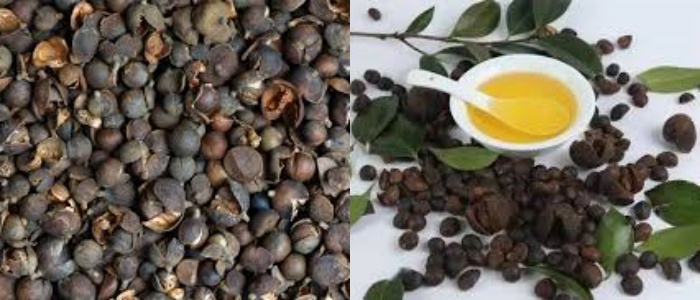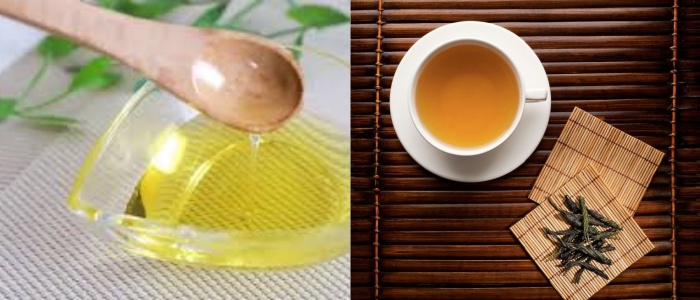When processing tea seed oil, to dry tea seeds is a crucial step, which significantly impacts the overall quality and efficiency of tea seeds oil processing. It can not only prevent mold and spoilage of tea seeds, reduce moisture content for better storage, but also enhance the efficiency of tea seeds oil extraction and ensure the quality of tea seed oil.
 The picture of tea seed
The picture of tea seed
Tea seeds, like any organic material, contain a certain amount of moisture. If the moisture content is too high and the seeds are not dried, it will have some harmful things. These microorganisms in tea seeds not only damage the quality of the tea seeds, but also produce toxins. By drying the tea seeds, the moisture content can be reduced to a level that inhibits the growth of these harmful microorganisms, thus ensuring the safety and quality of the raw materials used for tea seeds oil extraction.
Dried tea seeds have a much longer shelf life than moist or undried tea seeds. When moisture content is reduced, the chemical and enzymatic activities that cause tea seeds to deteriorate are significantly slowed. It can reduce the speed of rancidity. By drying the tea seeds to the appropriate moisture content (usually around 8-10% for tea seeds), the rate of these harmful chemical reactions can be minimized, allowing for better storage of the tea seeds before oil extraction.
 Tea seed oil drying equipment
Tea seed oil drying equipment
Excessive moisture in the tea seeds can negatively impact the tea seeds oil extraction process. For mechanical oil extraction methods like pressing, wet tea seeds can be problematic. High moisture content results in reduced oil yields because the moisture in the seeds interferes with the proper functioning of the press. Additionally, during solvent extraction, the presence of moisture can affect the solubility and selectivity of the solvent. By drying the tea seeds, the oil extraction process becomes more efficient and a higher yield of pure tea seed oil can be obtained. Dried tea seeds are more likely to produce oil during the oil extraction process.
Drying tea seeds helps maintain the quality of the extracted tea seed oil. The quality parameters of the oil, such as peroxide value, acid value and color, are affected by the state of the tea seeds before oil extraction. Wet tea seeds are more susceptible to oxidation during the oil extraction process, which results in higher peroxide and acid values of the oil. The peroxide value is a measure of the degree of oxidation of the oil, and a high peroxide value indicates that the oil has undergone severe oxidative deterioration. By drying the tea seeds, the oxidation process is inhibited and the quality of the tea seed oil in terms of chemical stability and organoleptic properties (such as color and flavor) can be maintained at a high level.
 The photo of tea seed oil
The photo of tea seed oil
Except for the drying process, the whole tea seeds processing process includes vibrate screen, destoner, magnetic separator, flat plate dryer, cracker, shell & kernel separator, crusher, cooker, presser and filter. If you need more details about processing tea seeds, please contact with us -- Henan Glory Company.